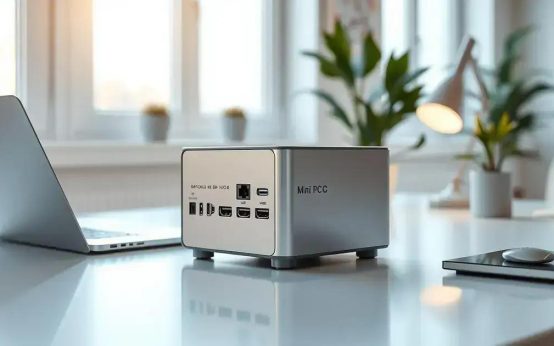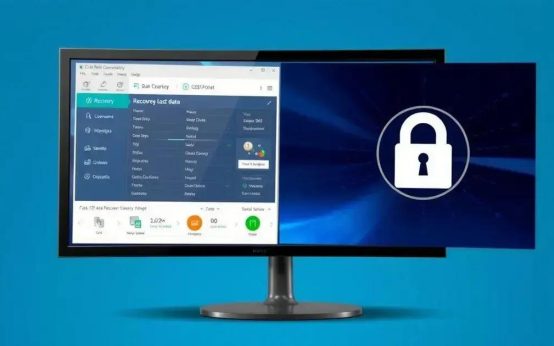When choosing a programming laptop, prioritize specifications such as performance, RAM (at least 16GB), SSD storage, and display quality to enhance your coding experience.
Looking for the perfect laptop to enhance your coding experience? The right programming laptops can significantly impact your productivity and comfort while coding. Let’s dive into what to look for and some top picks!
Key features to consider when choosing a programming laptop

When selecting a programming laptop, consider performance as a primary factor. Look for models equipped with at least an Intel i5 or AMD Ryzen 5 processor to ensure smooth multitasking and efficient code compilation.
RAM and Storage
Next, evaluate the RAM and storage options. A minimum of 16GB of RAM is recommended for programming, especially when running multiple applications simultaneously. Additionally, opt for a solid-state drive (SSD) for faster read and write speeds, which can significantly enhance overall performance.
Graphics Card
If you plan to work with graphics or game development, a dedicated graphics card is essential. Look for laptops that include NVIDIA GeForce or AMD Radeon GPUs to handle graphical tasks efficiently.
Keyboard and Build Quality
The keyboard quality should not be overlooked. A comfortable, responsive keyboard can make an enormous difference during long coding sessions. Ensure the laptop has a good build quality and ergonomics to support your working style.
Battery Life
Lastly, consider the battery life. A programming laptop should ideally last a full workday on a single charge, so look for models that boast a battery life of around 8 to 10 hours. This ensures you can work efficiently without being tethered to an outlet.
Best programming laptops for different coding tasks

Choosing the right laptop for coding tasks depends on the specific needs and demands of your projects. Here’s a breakdown of the best programming laptops tailored for different coding tasks.
Web Development
For web developers, a laptop with strong performance and good battery life is essential. Models like the MacBook Air M1 and Dell XPS 13 are favored for their lightweight designs and excellent screens. These options ensure you can code on the go without complications.
Mobile App Development
If you are into mobile app development, consider a laptop with a powerful processor and ample RAM. The Lenovo ThinkPad X1 Carbon and MacBook Pro are great choices, providing robust performance for running emulators and testing applications.
Data Science and Machine Learning
For data science tasks, a laptop with dedicated graphics and higher RAM is crucial. The Razer Blade 15 and Microsoft Surface Laptop 4 offer strong GPUs and fast SSDs, making them ideal for handling large datasets and intensive calculations.
Game Development
Game development requires significant processing power and good graphics. The ASUS ROG Zephyrus G14 and HP Omen 15 come with powerful GPUs and are equipped to manage demanding coding and rendering tasks effectively.
General Coding
For general coding tasks, practically any recent model with decent specs will suffice. The HP Pavilion 15 and Acer Aspire 5 are budget-friendly options that deliver good performance for less demanding coding activities.
Comparing performance: Intel vs. AMD processors

When choosing a programming laptop, one of the most significant decisions is between Intel and AMD processors. Both brands offer excellent performance, but there are key differences to consider.
Performance
Intel processors, particularly from the Core i7 and Core i9 series, often provide strong single-core performance. This makes them ideal for tasks that rely heavily on a single thread, such as many legacy applications and specific software development environments.
Multithreading Capabilities
On the other hand, AMD’s Ryzen series excels in multithreading. With more cores and threads in their processors, AMD can handle more tasks simultaneously. This is particularly useful for developers working with heavy applications like virtual machines or data analysis tools.
Power Efficiency
Power consumption is another factor. AMD’s latest Ryzen processors tend to be more power-efficient than their Intel counterparts, meaning they can provide longer battery life. For those who work on the go, this efficiency is crucial.
Price
In terms of pricing, AMD often provides better value for money, especially in the mid-range market. Users may find they can get more cores and better performance for a lower price compared to Intel.
Compatibility
Lastly, consider compatibility with software or development tools. Certain applications may perform better on a specific processor type, so check the requirements of your most-used development tools.
Importance of display quality in coding laptops

The display quality of a coding laptop plays a crucial role in your overall coding experience. A high-quality display can reduce eye strain and improve productivity.
Resolution
A higher resolution provides clearer images and sharper text. Laptops with at least a Full HD (1920×1080) resolution are recommended for a better viewing experience. This clarity helps you see code more distinctly, making it easier to spot errors.
Color Accuracy
Good color accuracy ensures that colors on your screen are displayed as they should be. This is particularly important for developers working in fields like web design or graphic programming, where color representation is critical.
Screen Size
The screen size also matters. While larger screens, like 15 to 17 inches, provide more real estate for multitasking, smaller screens are portable and easier to carry. It’s essential to find a balance that suits your coding style.
IPS vs. TN Panels
Consider the type of display panel as well. IPS (In-Plane Switching) panels offer better viewing angles and color reproduction compared to TN (Twisted Nematic) panels. Opt for IPS if you plan to work on graphics or need consistent colors from different angles.
Brightness Levels
Finally, check the brightness levels. A display that offers at least 300 nits of brightness will be easier to use in well-lit environments, ensuring clear visibility without straining your eyes.
Budget-friendly options for budding programmers

For budding programmers, finding a budget-friendly laptop that meets coding needs is essential. Here are some great options that won’t break the bank while still offering solid performance.
Acer Aspire 5
The Acer Aspire 5 is a fantastic choice for beginners. It features a 15.6-inch Full HD display, up to 16GB of RAM, and an AMD Ryzen 5 or Intel i5 processor, making it capable of handling most programming tasks with ease.
Lenovo IdeaPad 3
Another budget-friendly option is the Lenovo IdeaPad 3. This laptop comes with a decent processor, up to 12GB of RAM, and reliable performance for everyday coding tasks. It’s lightweight and portable, perfect for students or commuters.
HP Pavilion x360
If you prefer a convertible laptop, consider the HP Pavilion x360. This 2-in-1 device offers flexibility with its touchscreen and is suitable for note-taking during lectures. It includes a good keyboard and enough power for coding.
Dell Inspiron 15 3000
For those who want a trusted brand, the Dell Inspiron 15 3000 series provides solid performance at an affordable price. It features a robust build and comes with essential specifications to support coding and development needs.
Asus VivoBook 15
Lastly, the Asus VivoBook 15 offers a sleek design and ample performance for budding programmers. With its NanoEdge display and lightweight feel, it’s both functional and stylish for classroom or home use.
Choosing the Right Laptop for Programming
In conclusion, selecting the right laptop for programming is crucial for your success as a developer. Consider factors such as performance, display quality, and budget when making your choice.
Whether you opt for a powerful model or a budget-friendly option, having the right tools can enhance your coding experience and productivity.
Make sure to choose a laptop that suits your coding needs and fits your lifestyle. With the right device, you can embark on your programming journey with confidence and efficiency.
FAQ – Frequently Asked Questions about Programming Laptops
What should I look for in a programming laptop?
When choosing a programming laptop, focus on performance, RAM, storage type (preferably SSD), and display quality.
Are budget-friendly laptops suitable for programming?
Yes, many budget-friendly laptops like the Acer Aspire 5 and Lenovo IdeaPad 3 offer good performance for programming tasks.
Why is display quality important for coding?
A high-quality display reduces eye strain and improves readability, making it easier to work with code for long hours.
How much RAM do I need for programming?
Ideally, look for at least 16GB of RAM, especially if you plan to run multiple applications or virtual machines.
Is Intel or AMD better for programming laptops?
Both are good. Intel offers strong single-core performance, while AMD excels in multithreading, making both valid options depending on your needs.
What are some best practices for maintaining my programming laptop?
Keep your laptop clean, perform regular updates, and ensure efficient cooling to maintain optimal performance.


 Mini PC: Unleash Powerful Performance in a Compact Design
Mini PC: Unleash Powerful Performance in a Compact Design  Windows update: avoid the taskbar nightmare and reboot loops
Windows update: avoid the taskbar nightmare and reboot loops  Data recovery: How to restore lost partitions easily
Data recovery: How to restore lost partitions easily